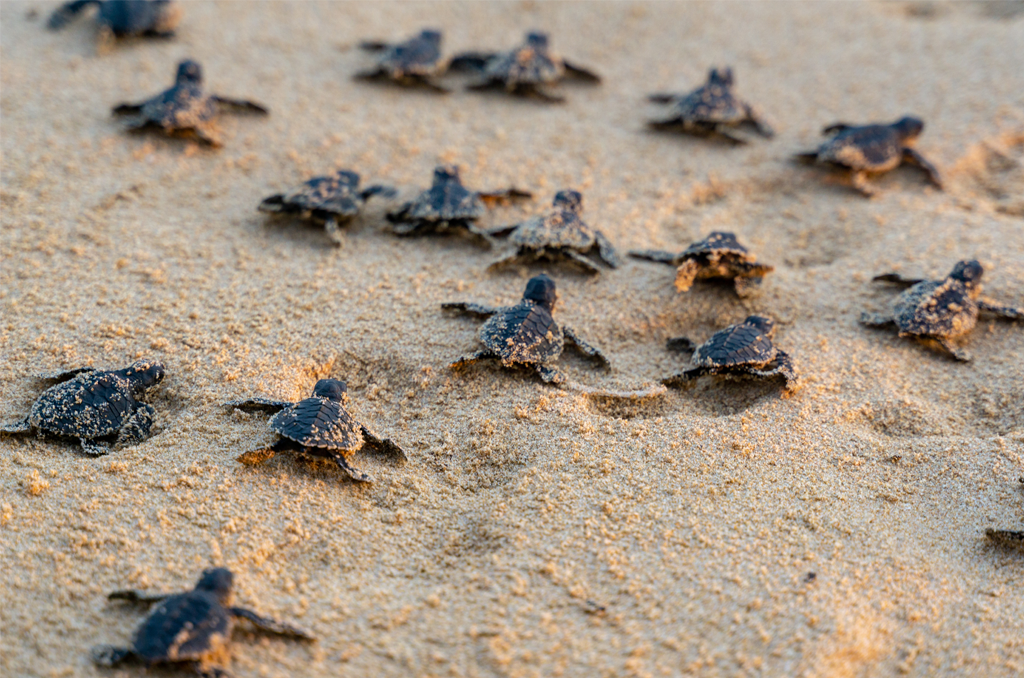Courtesy: Shutterstock – Image by Julian Wiskemann
Save the turtles is more than just a movement, it’s a lifestyle for many who put their life’s work towards saving the endangered species.
According to a press release this morning from the Sea Turtle Oversight Protection (S.T.O.P), the organization revealed that on April 28, 2021, Florida Fish and Wildlife Conservation Commission authorities notified S.T.O.P. that they would not be renewing 3 of 5 rescue permits to conduct nighttime hatchling rescue operations.
“Without prior notice and just as the 2021 sea turtle nesting season commences, FWC has effectively gutted S.T.O.P. by reducing the number of permits to just 2, thereby reducing patrollers from 121 to 48,” read the release. “Additionally, FWC wants to phase out ALL night time patrols over the next several years.”
The failure to renew the permits will immediately reduce the workforce in the organization by 60 percent, which will ultimately create a snowball effect that will adversely affect the safety of the sea turtle hatchling population.
Additionally, the FWC reportedly made the decision without announcing alternative measures to protect the species now that the workforce for S.T.O.P. has been cut down.
A large portion of the problem in protecting the sea turtles is the oversight on the beaches near the hatchlings. Without personnel to guide turtles to the water at night, many of them will veer away from the ocean and follow the artificial light from nearby streetlights, hotels, restaurants, and more.
In Broward County, lighting ordinances have been adopted throughout all coastal municipalities; unfortunately, compliance and enforcement execution have fallen short. S.P.O.T. believes that guiding the thousands of hatchling nests on South Florida’s shores will become an impossibility with the permit cuts for nighttime releases.
Sea turtle hatchling releases traditionally occur in the summer months between mid-June and August, and many happen during nighttime and early morning hours. If artificial light reaches the beach, upon hatching, turtles are attracted to the vibrant light and stray from the water, resulting in the loss of baby turtles to traffic, drainage systems, and pedestrians.
“S.T.O.P. has been the largest permit holder in the state, operating under FWC guidelines since 2007 and rescuing nearly 250,000 hatchlings to date,” said the release. “In 2019, S.T.O.P. ‘s 121 trained volunteers spent thousands of hours patrolling approximately 18 miles of beach from dusk till dawn, rescuing 29,650 hatchlings from certain death due to disorientation from artificial light pollution.”
The news is a huge blow to an organization that has dedicated its work to save an endangered species. As of now, the FWC has only stated the permits that were handed out over 10 years ago were never meant to be permanent and are no longer needed, according to an ABC News report.
Are you interested in Florida’s nature? For stories like this and much more: Florida Insider is dedicated to educating, entertaining and informing its readers about everything Florida. Easy to read content at the palm of your hands and covering the stories that matter.
Mike has more than 30 years of experience in marketing and public relations. He once owned his own agency and has worked with some of the largest brands in the world.

